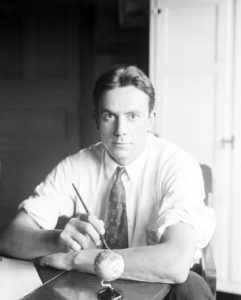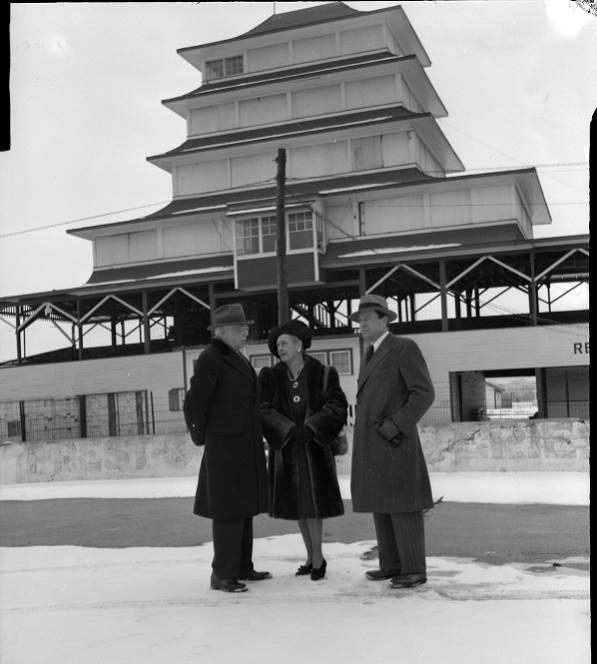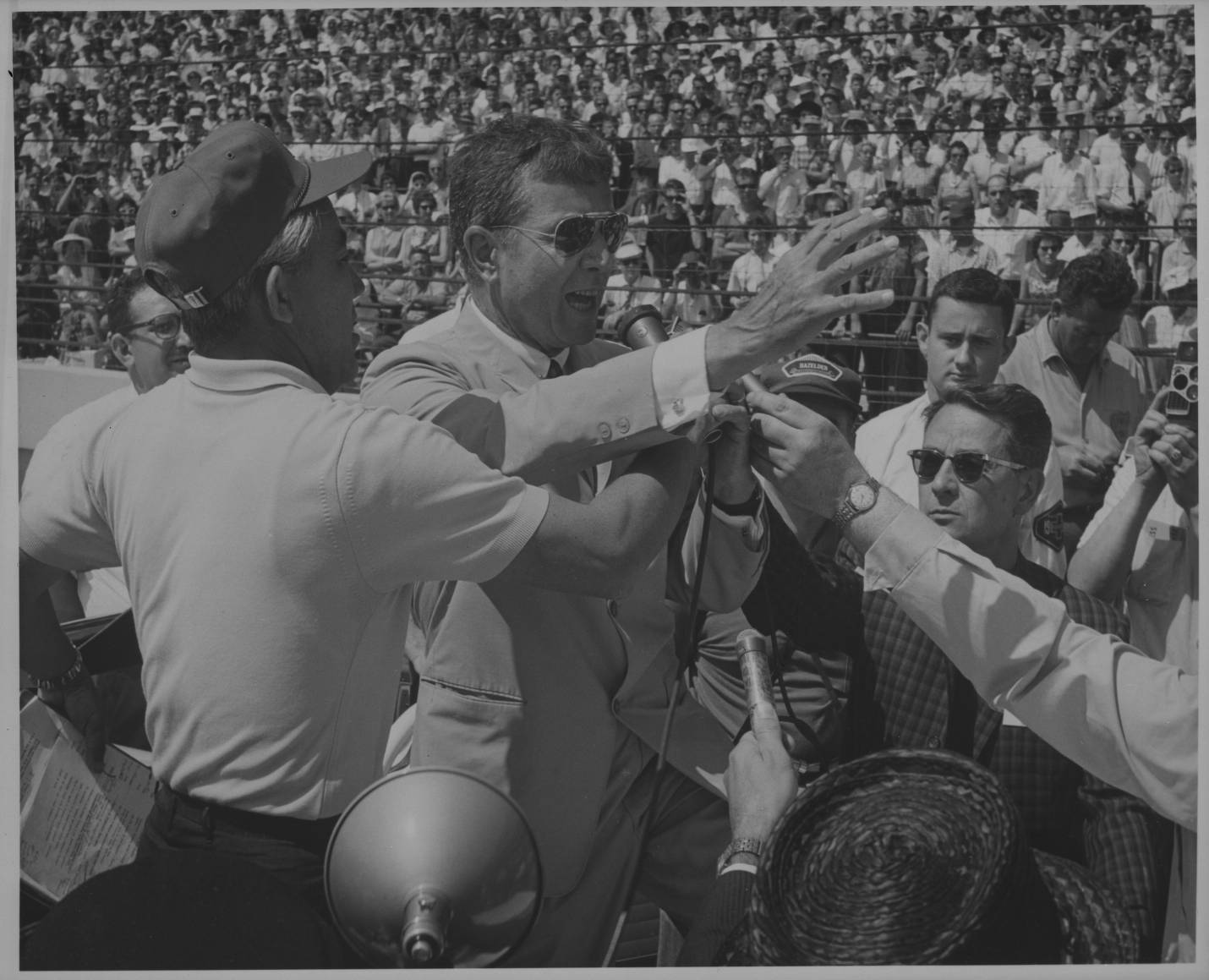
Photo info ...
Credit: Martin CollectionView Source
(Feb. 11, 1901-Oct. 27, 1977). Born in Terre Haute, Indiana, Anton (Tony) Hulman Jr. was the grandson of a German immigrant, Herman Hulman, who landed in Cincinnati, started a wholesale grocery business, and then moved to Terre Haute. By the time Hulman was ready for post-secondary education, the family was in a position to send him first to Worcester Academy, an elite boarding school in Worcester, Massachusetts.
During World War I, Hulman, at the age of 17, spent part of his high school summer break in war-torn France as an ambulance driver for the Red Cross. He was also very much the athlete. The Amateur Athletic Association named him the most outstanding high school pole vaulter in the United States for 1919.
Hulman went to Yale University where he continued to stand out as an athlete. He was a member of the school’s undefeated football team in 1923. In 1923 and 1924, he took part in several intercollegiate track and field meets, at one point winning the high hurdles event at the new Wembley stadium in England.

In 1924, Hulman graduated from Yale with a degree in engineering from its Sheffield Scientific School. In 1926, he married Mary Fendrich of Evansville, whose background was remarkably similar to his own. Her grandfather was also a German immigrant who had enjoyed considerable success in the business world. In this case, he and his brothers had started the La Fendrich cigar concern. A daughter, , was born to the couple in 1934.
Back from college, Hulman went to work for the family grocery business. As his first assignment, he marketed Clabber Girl Baking Powder, a product Hulman & Company had owned for some time. He is given much credit for the subsequent success of the product. By 1931, he was Hulman & Company president. Under his guidance, the company came to encompass real estate, power and utility businesses, newspapers, radio and television stations, a brewery, and eventually several Coca-Cola bottling plants, among other interests.
Following World War II, Shelbyville-born , the three-time winner—and generally the most successful of any “500” driver up to that point—approached Hulman about purchasing the Indianapolis Speedway, which had been shuttered and had fallen into disrepair during the conflict. On November 14, 1945, Hulman added the (IMS) to his assets.
Under Hulman’s ownership, Shaw initially served as IMS president and general manager. Largely unknown to the people of Indianapolis, Hulman generally kept a much lower profile than the dynamic and internationally known Shaw. While they did make numerous appearances together, the genial and down-to-earth Hulman seemed perfectly content to have Shaw be the frontman. The stories are legendary about him frequently misplacing his track credentials and being nothing but courteous and understanding when a well-meaning guard would not recognize him and temporarily deny access.

After the loss of Shaw in a private aircraft accident on October 30, 1954, Hulman assumed the title of president and subsequently became much more visible. Among other duties, he took over the verbal command to start the race that Shaw popularized. After veteran broadcaster and bandleader Luke Walton coached him, Hulman eventually developed the powerful and never-to-be-forgotten rendition, “GENNELLLMEEEEN, START YOURRRR ENGINES.”
Over the decades, Hulman and his family supported several civic and philanthropic causes, most centered in Terre Haute. The family provided support for the purchase of land to build a new municipal airport. Hulman Regional Airport was dedicated on Oct. 3, 1944. It also provided land for a new fire station and for the Hulman Links at Lost Creek, an 18-hole municipal golf course.
Hulman was especially generous to Terre Haute institutions of higher education. The Rose Polytechnic Institute saw its first gift from the Hulmans in 1917. In 1966, the Hulman Foundation gave $250,000 toward the construction of a campus center. In 1971, the Hulmans provided his largest gift to the Institute: $11 million in assets that included money from the family foundation, the Hulman Company, the Fendrich Cigar Company, and the Speedway. As a result, the school’s board of managers voted to rename the school the Rose-Hulman Institute of Technology.

Help improve this entry
Contribute information, offer corrections, suggest images.
You can also recommend new entries related to this topic.